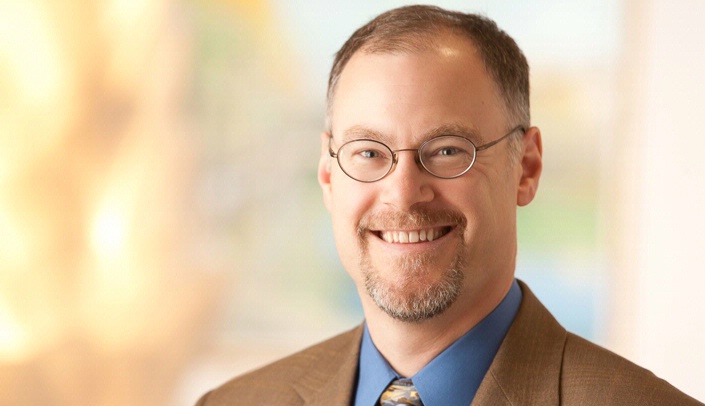Sculptor Kirk Vaughn-Robinson and William Lydiatt, M.D., director of head and neck surgical oncology in the department of otolaryngology at UNMC, will talk about the art and science of medical decision making at the next Omaha Science Cafe at 7 p.m. Tuesday at the Slowdown, 729 N. 14th St.
Dr. Lydiatt and Vaughn-Robinson will discuss how they collaborated to teach students enrolled in UNMC’s High School Alliance program different aspects of medical decision making using art, literature and clinical vignettes.
To read more on this week’s Science Cafe, click here.
Dr. Lydiatt received his bachelor’s degree from Stanford University and his medical degree from UNMC, where he also completed his residency in otolaryngology-head and neck surgery. He then completed a two-and-a-half-year fellowship in head and neck oncologic surgery, sponsored by the National Cancer Institute, at Memorial Sloan Kettering Cancer Center in New York. Dr. Lydiatt is board certified in otolaryngology-head and neck surgery.
His research and academic interests are in prevention of depression in head and neck cancer patients, staging of head and neck cancers and exploring novel means of educating medical students, including using art in teaching observational skills.
Vaughn-Robinson’s sculptures have appeared in galleries from California to Canada to New York. He has a bachelor of music degree in vocal performance. He began his artistic career in the opera world and is currently involved in musical theater.
He recently completed a three-month artist-in-residency at Fontenelle Forest in Bellevue, where he completed three large scale public art pieces, as well as a children’s book, “The Chorus of the Forest,” that he wrote and illustrated while there.
To learn more about Vaughn-Robinson visit his website.
Science Cafes involve a face-to-face conversation with a scientist about current science topics. They are open to everyone (21 and older) and take place in casual settings like pubs and coffeehouses. Each meeting is organized around an interesting topic of conversation. A scientist gives a brief presentation followed by a question and answer period.
Pizza will be provided for the first 50 people. For more information about Science Cafes, click here. Podcasts of previous Science Cafes also are available on the website or available for download on iTunes here.
